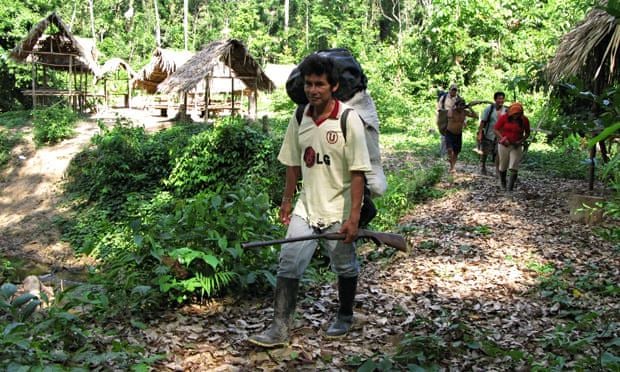 Edwin Chota was killed in the forest he had fought to protect.
Edwin Chota was killed in the forest he had fought to protect.
The Peruvian environmental activist had appealed to his government for help after receiving death threats from the illegal loggers that plagued the area around his village, deep in the Amazon rainforest. And yet, in September, he and three other prominent members of the Peruvian Ashéninka community were ambushed and shot on a jungle trail as they travelled to meet fellow activists from neighbouring Brazil. Chota’s widow journeyed six days by river to the regional capital to report their deaths.
Chota’s death is a reminder of the price that local activists in some of the world’s most remote areas are paying as they fight to defend their communities from exploitation and industrialisation. Global demand for natural resources is growing, and indigenous people are receiving little protection from those who would destroy their land, forests, and rivers. Instead, they are being murdered with impunity at an alarming rate, sometimes with the complicity of government authorities.
Peru is a prime example. It ranks fourth in the world for murders of environmental activists (after Brazil, Honduras, and the Philippines), with 57 activists in the country killed from 2002 to 2013, according to campaigners Global Witness. More than half of the country is still covered by rainforest, but those forests are being cut down at an accelerating rate to satisfy voracious international demand for timber and related products.
Sadly, this phenomenon is not confined to Peru. According to Global Witness, from 2002 to 2013, more than 900 people in 35 countries died defending the environment or fighting for the right to their land. The death toll has risen sharply in recent years. Worldwide, activists are murdered at an average rate of two per week. Given that such deaths tend to go unreported, the real number could be even higher. In only 10 cases have the perpetrators been brought to justice.
Read more: http://www.theguardian.com/environment/2014/nov/17/environ























